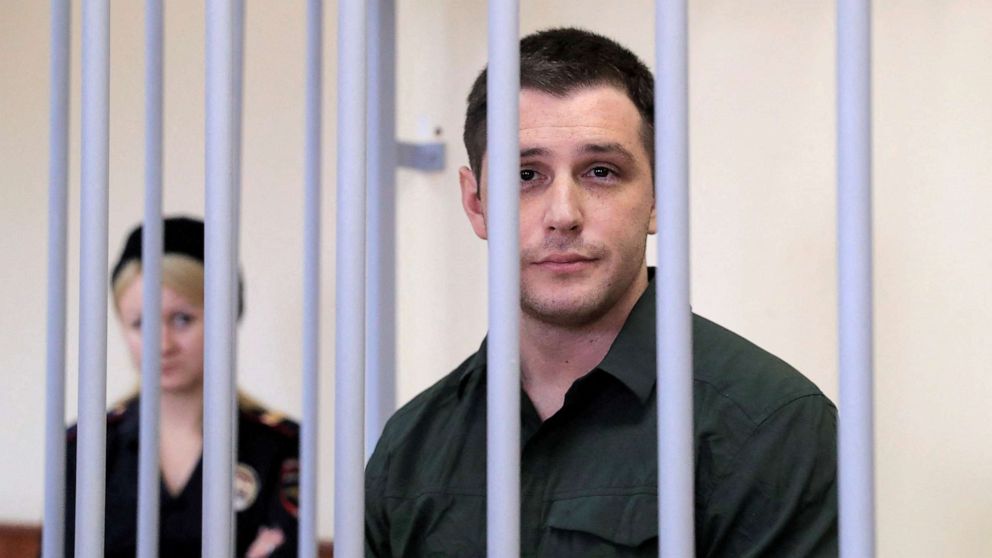Trevor Reed 'cautiously optimistic' about proposal to free Griner and Whelan from Russia
Trevor Reed, a former Marine from Texas who served nearly three years in a Russian prison before he was freed in a prison swap this spring, said he is "cautiously optimistic" that a similar deal can be worked out in the high-profile cases of two other Americans currently detained in Russia.
Secretary of State Antony Blinken announced this week that the U.S. has offered Russia a proposal to bring WNBA star Brittney Griner and former Marine Paul Whelan home.
The White House wouldn't confirm details of the proposal, but three sources familiar with the offer confirmed to ABC News that the U.S. had proposed exchanging convicted arms dealer Viktor Bout in order to secure Griner and Whelan's release from Russia.
In an interview with ABC News on Thursday, a day after news of the possible deal broke, Reed said he was "extremely excited" when he heard the latest development.
"I'm cautiously optimistic that that trade is going to work out, and I hope it does," he said. "I'm watching along with the rest of America to see if that happens."
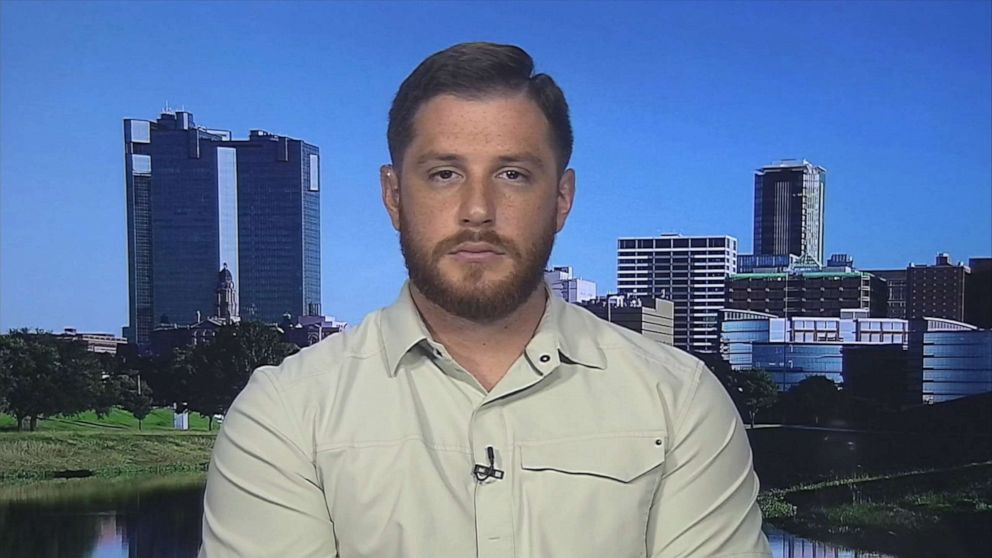
Reed, 30, was arrested in Moscow in the summer of 2019 while visiting his Russian girlfriend. Russian authorities accused him of assaulting officers while being driven to a police station after a night of heavy drinking. He was convicted by a Russian court in 2020 and sentenced to nine years in a prison camp.
As his family grew increasingly worried about his health in the dire prison conditions, Reed was released in April as part of a prisoner exchange between the Biden administration and the Kremlin. Reed was freed in exchange for Konstantin Yaroshenko, a pilot from Russia who was sentenced in 2011 to 20 years in prison for conspiring to smuggle cocaine into the U.S.
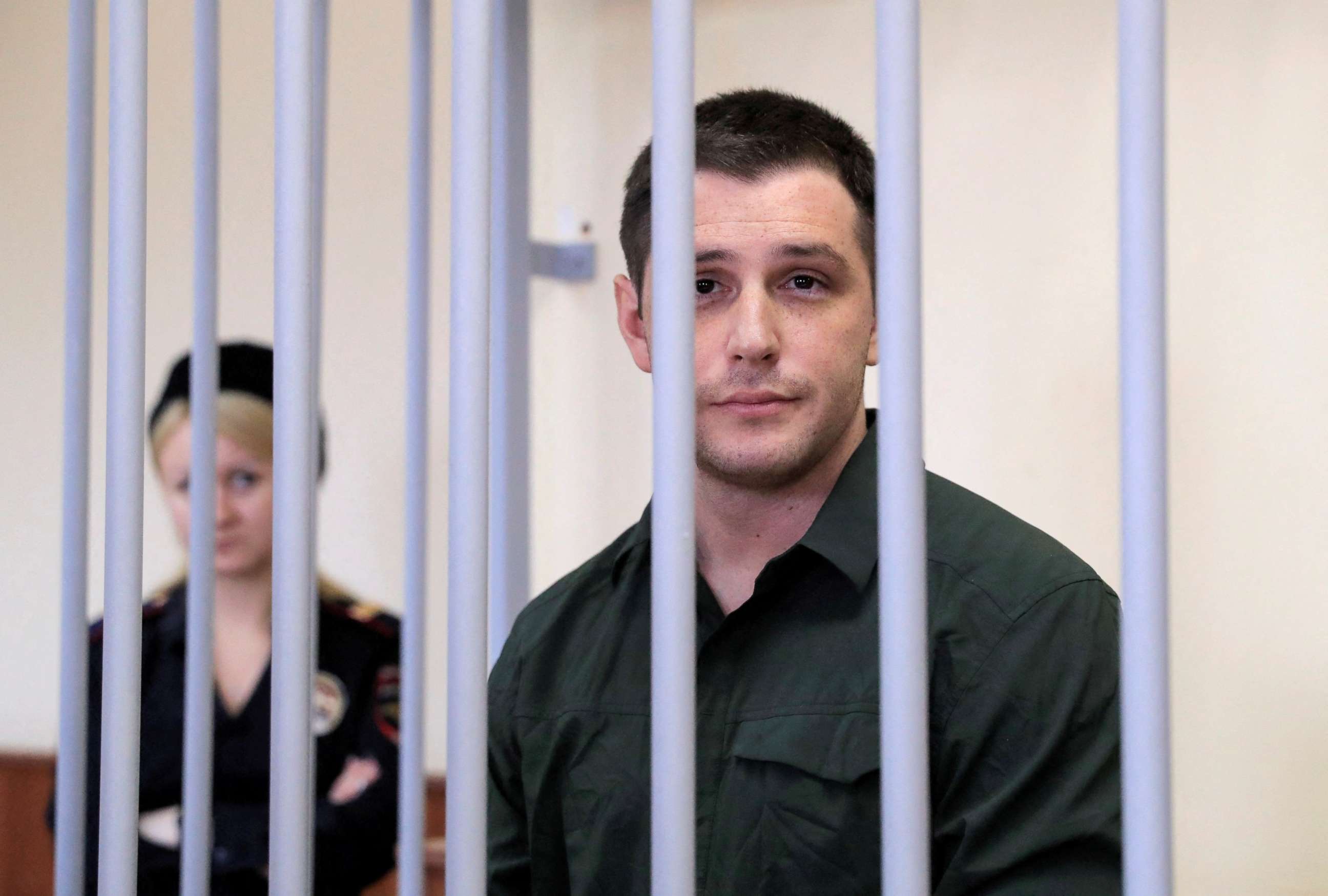
Reed told ABC News he did not want to hear any news of a possible release while he was in prison.
"I didn't hope for anything, I didn't expect anything," he said. "I asked my parents not to tell me about any news that was positive regarding my situation there because I didn't want to have that hope. And I didn't want to have the possibility of me losing that hope. That was my strategy."
For Griner and Whelan, though, he said he would want them to have hope and "hang on to that."
The experience of finally coming home was "surreal," he said.
"In these situations, you never know if that's going to work out until your feet are on U.S. soil," he said.
He said he was surprised by the announcement of the proposal, but sees it as a good sign for Griner and Whelan.
"They may be doing that to show the Russians that they're serious about this exchange, that they want to get this done, that they're willing to get that done," he said.
"It may represent a change in policy with the administration," he continued. "Maybe the administration now is going to be more open to prisoner swaps for all Americans who are wrongfully detained."
Reed sees a swap with Bout as a "win-win" for the U.S. and Russia.
"If the Russians are not idiots, then I think that they will accept that deal," he said.
Since coming home, Reed has been vocal about the plight of Griner and Whelan and has called on the U.S. government to negotiate a prisoner swap like the one that freed him.
He previously has argued that the U.S. should trade Bout, who is serving a 25-year prison sentence after being convicted in 2012 on federal narco-terrorism charges, for the two Americans' release. Bout has repeatedly been suggested by Russian state media as a possible trade as well.
Blinken said Wednesday that he will hold a call with Russia's Foreign Minister Sergey Lavrov "in the coming days" to discuss securing the freedom of Griner and Whelan. He revealed the U.S. government had already "put a substantial proposal on the table weeks ago to facilitate their release" and remains hopeful for a breakthrough in their cases.
At a press conference in Moscow on Thursday, Russian Ministry of Foreign Affairs spokeswoman Maria Vladimirovna Zakharova confirmed that "the issue of mutual exchange of Russian and American citizens, staying in places of detention on the territory of the two countries, was discussed at one time by the presidents of Russia and the United States," but "a concrete result has not yet been achieved."
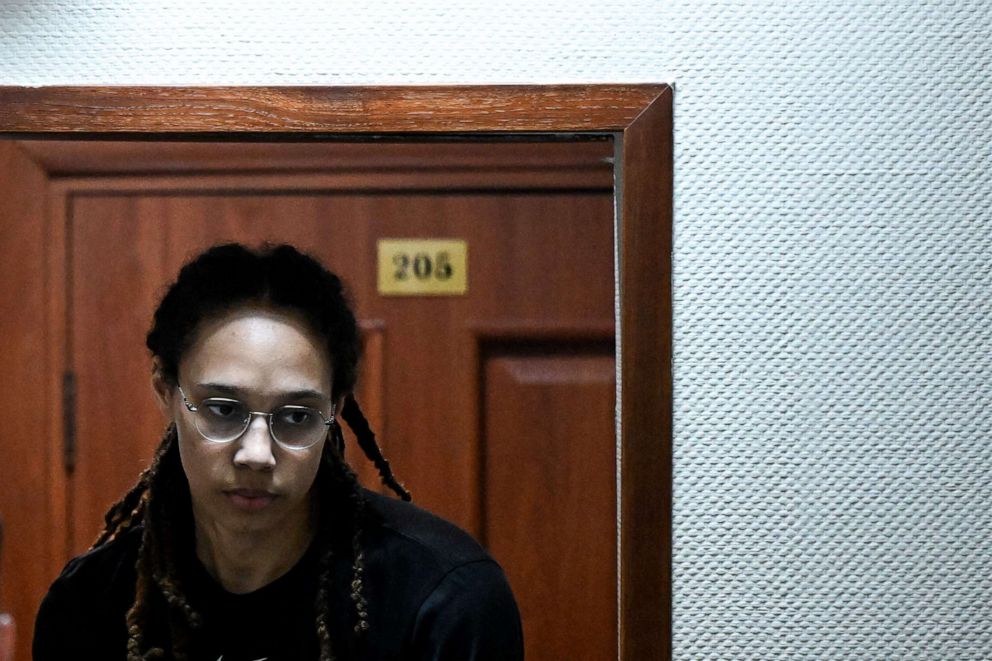
Griner, 31, has been detained in Russia since Feb. 17 and is currently on trial for drug charges. She was arrested at Sheremetyevo International Airport in Khimki after she was accused of having vape cartridges containing hashish oil, which is illegal in the country.
Griner, a Phoenix Mercury player who had been returning to Russia to play during the WNBA's offseason, testified this week that she did not mean to violate Russian law when bringing vape cartridges into the country and that she was in a hurry and stressed after recovering from COVID-19 that month.
Griner has reached out to President Joe Biden, urging him in a letter earlier this month to help get her out of Russia.
"As I sit here in a Russian prison, alone with my thoughts and without the protection of my wife, family, friends, Olympic jersey, or any accomplishments, I'm terrified I might be here forever," Griner wrote to the president in the handwritten letter, portions of which were made public by her representatives.
A verdict in the case is expected early next month. If convicted, she faces up to 10 years in prison. She does have the right to an appeal.
Whelan, 52, a Michigan-based corporate security executive, was arrested in December 2018 on espionage charges while visiting Moscow for a friend's wedding. In June 2020, he was found guilty and sentenced to 16 years of "hard labor" in a Russian prison. Both he and the U.S. government have said the claims are false.
"We do worry about his condition," his twin brother, David Whelan, told ABC News' Robin Roberts during an interview Thursday on "Good Morning America." "He's in a labor colony in Russia -- the food's not great, the environment's not great. He's lost about 20% of his weight since he was arrested. We know that he is not being given proper nutrition because that's the normal diet in a Russian prison and we have to supplement that with quarterly packages of dried fruits, nuts, things like that to make sure he stays healthy."
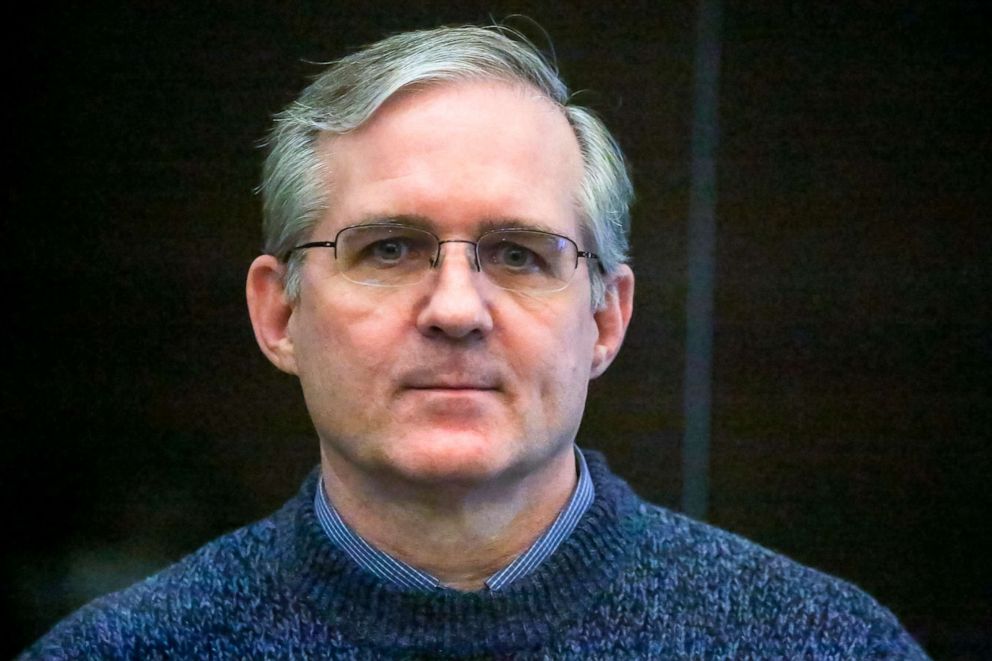
David Whelan expressed optimism following news of the U.S. government's proposal.
"The offer that the U.S. government has made -- and extraordinarily made public -- is super. Hopefully, the Russian government will take the concessions that have been made and allow Paul to come home," he said.
Calls to free both Americans have escalated in the months since Reed's release, and the State Department has said their cases are an "absolute priority."
"We're still hoping that this proposal will be accepted by the Russians and that we can move forward and bring Brittney and Paul home to their families where they belong," White House spokesperson John Kirby told ABC News' George Stephanopoulos during an interview Thursday on "Good Morning America."
ABC News has learned that the proposed swap does not include American Marc Fogel, a 60-year-old teacher who was recently sentenced to 14 years in a Russian penal colony on drug charges.
His attorney, Thomas Firestone, told ABC News on Thursday that he hopes the U.S. government will designate Fogel as wrongfully detained and "use all of its efforts to try to get him out."
Firestone said Fogel's spirits are "not good."
"We're very concerned about him," Firestone said.
